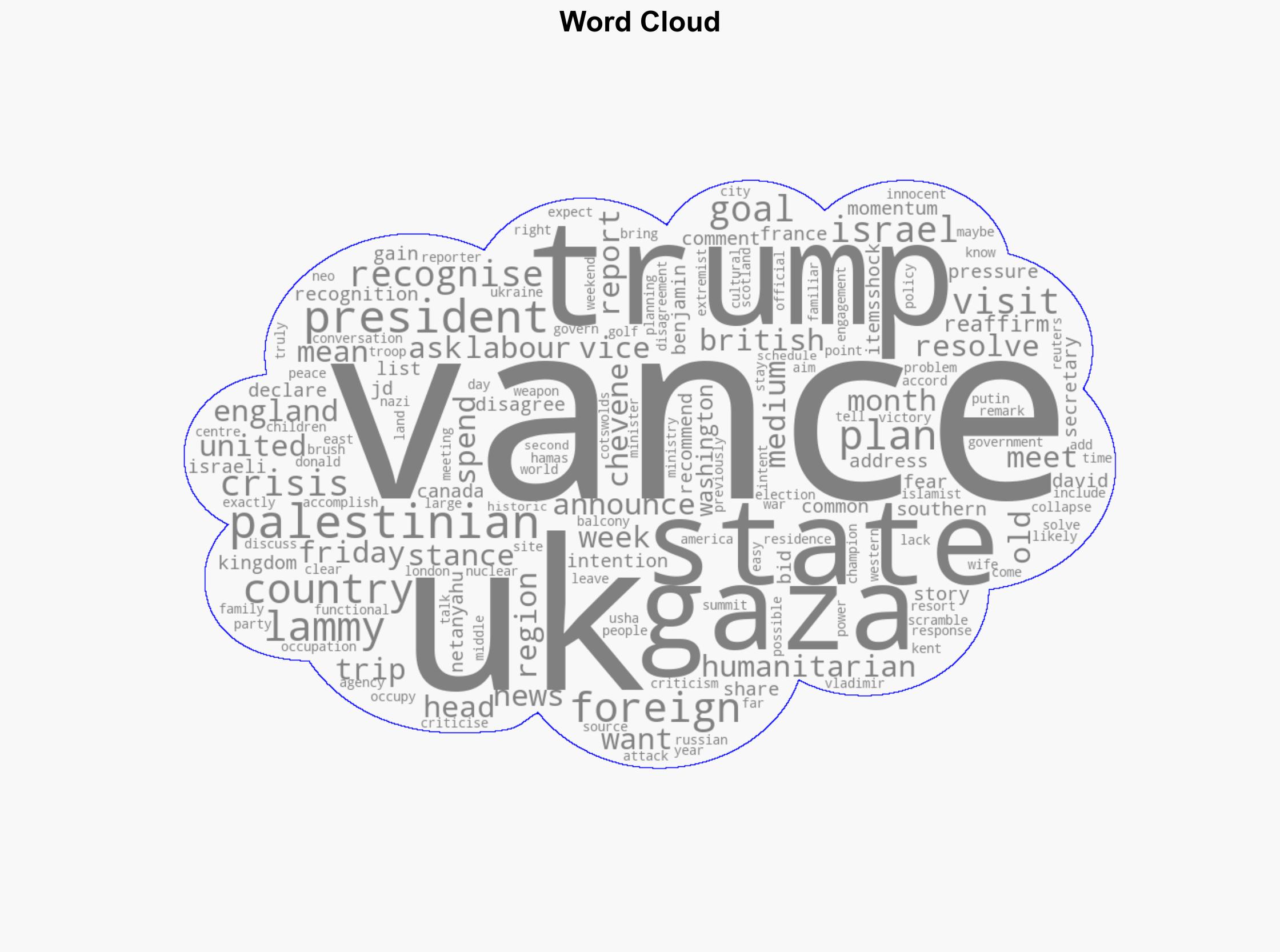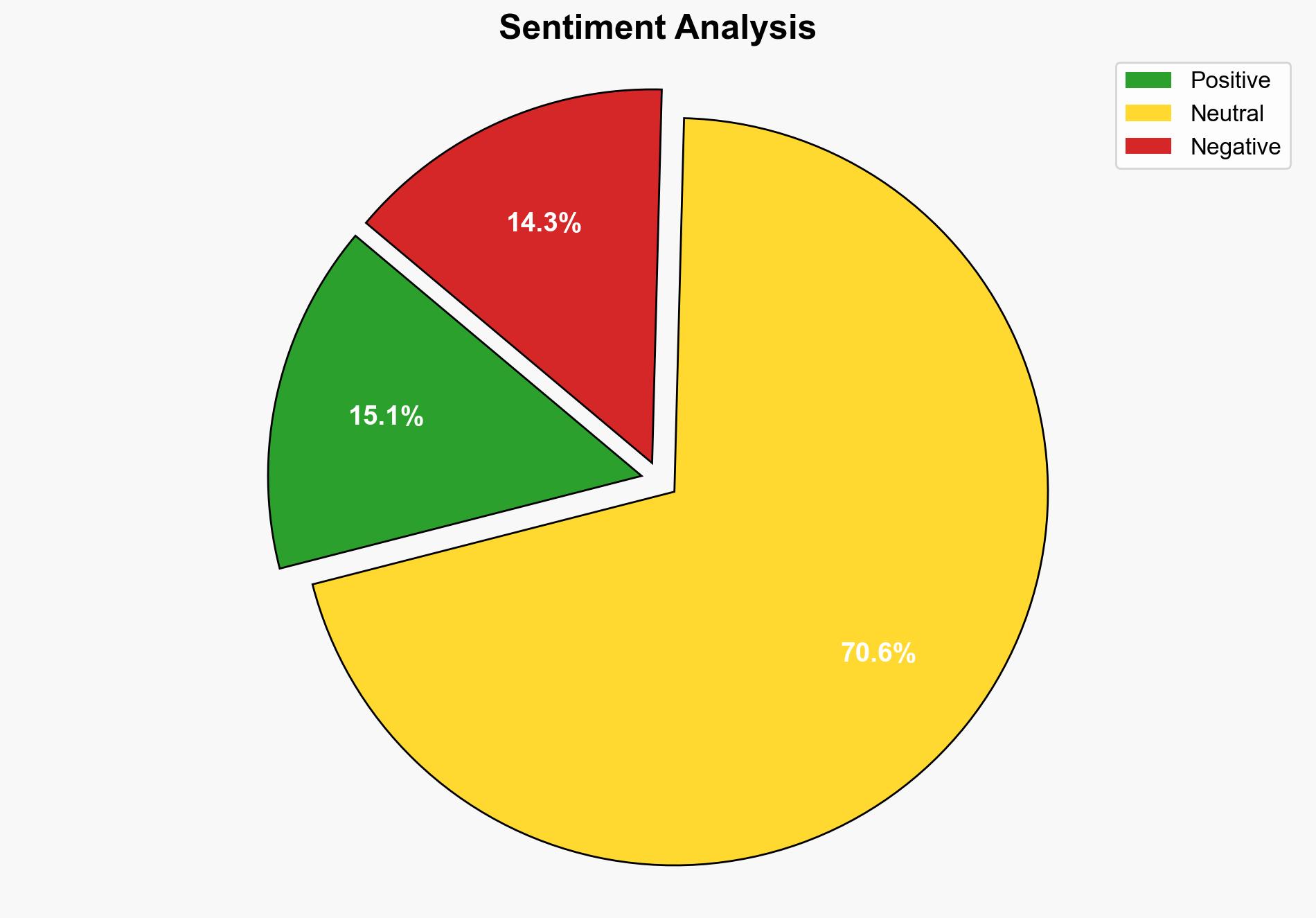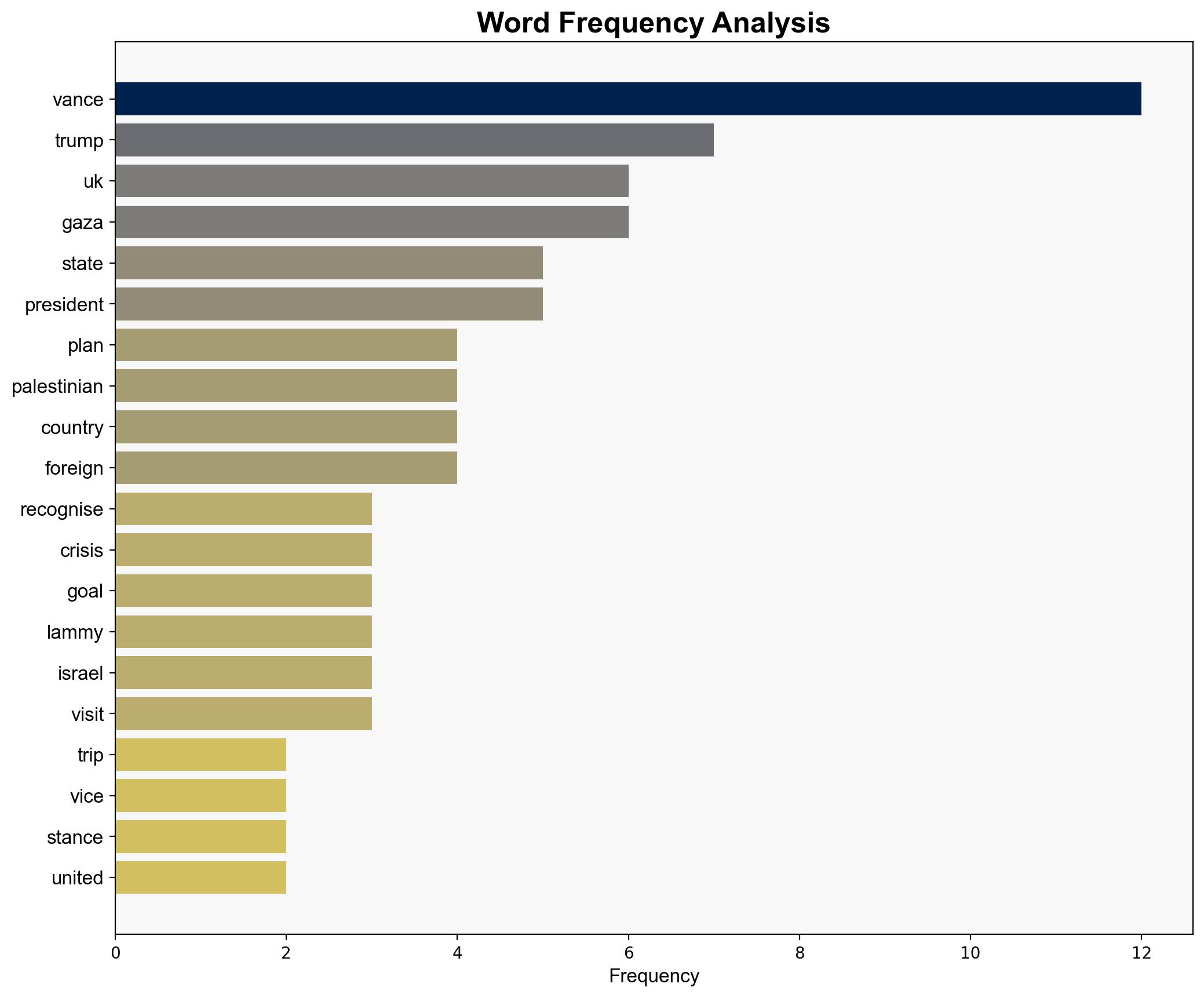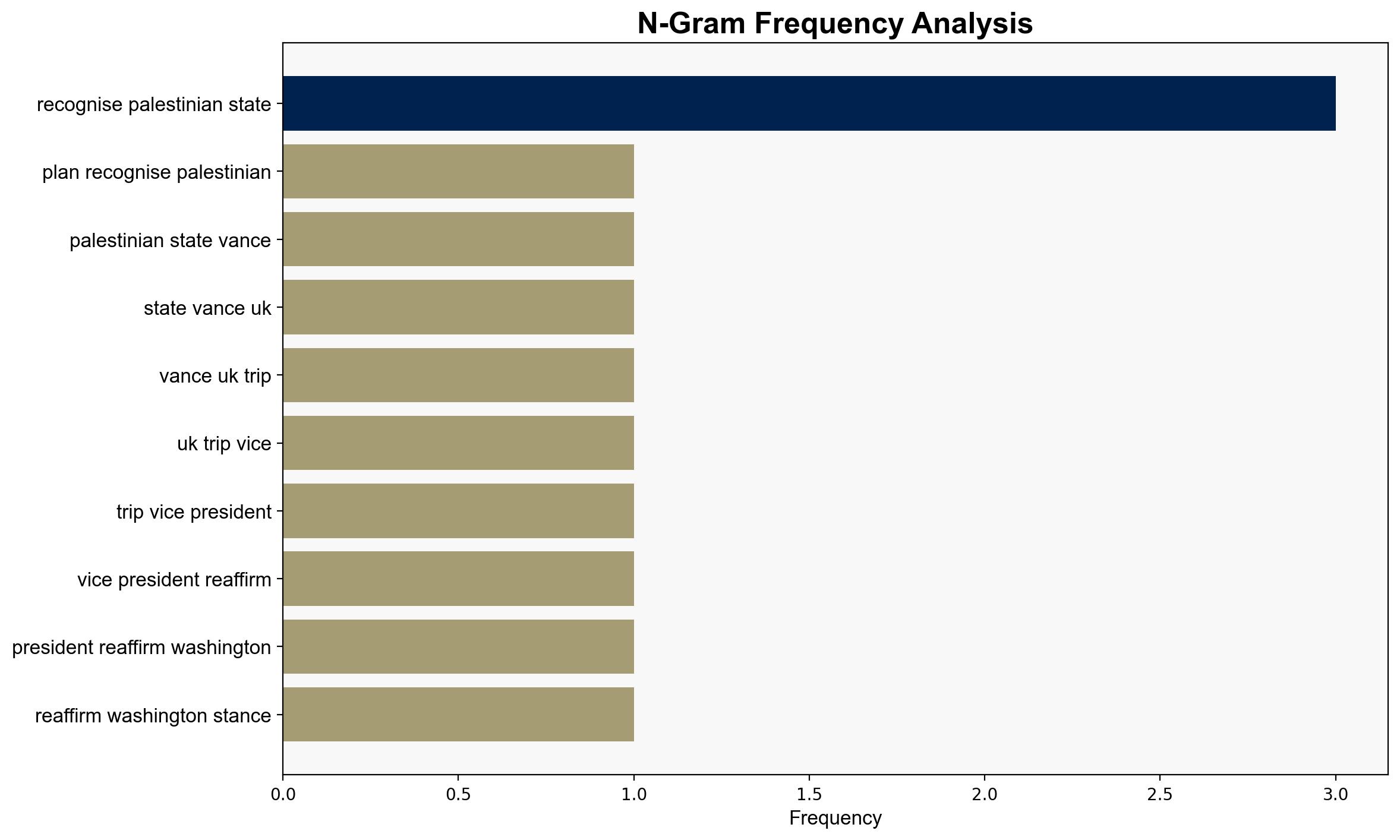US has no plans to recognise Palestinian state Vance says on UK trip – Al Jazeera English
Published on: 2025-08-08
Intelligence Report: US has no plans to recognise Palestinian state Vance says on UK trip – Al Jazeera English
1. BLUF (Bottom Line Up Front)
The United States, as articulated by JD Vance, maintains its stance against recognizing a Palestinian state, despite international pressure. This position is likely driven by strategic alliances and geopolitical considerations. The most supported hypothesis is that the US aims to balance its Middle Eastern policy by addressing humanitarian issues without altering its diplomatic stance. Confidence Level: Moderate. Recommended action is to monitor shifts in international pressure and potential changes in US policy post-2024 elections.
2. Competing Hypotheses
1. **Hypothesis A**: The US maintains its non-recognition policy to preserve its strategic alliance with Israel and avoid destabilizing its Middle Eastern policy framework. This hypothesis is supported by the consistent US foreign policy stance and Vance’s reaffirmation of this position.
2. **Hypothesis B**: The US is open to revisiting its stance on Palestinian state recognition but is currently prioritizing humanitarian concerns in Gaza over diplomatic changes. This hypothesis is less supported due to the lack of explicit statements indicating a shift in policy direction.
3. Key Assumptions and Red Flags
– **Assumptions**: It is assumed that the US’s current stance is primarily influenced by its alliance with Israel and the geopolitical stability of the region.
– **Red Flags**: The lack of a clear plan from the US on how to address the humanitarian crisis in Gaza without altering its diplomatic stance could indicate potential policy shifts under different administrations.
– **Blind Spots**: The potential influence of domestic political changes in the US on foreign policy decisions is not fully addressed.
4. Implications and Strategic Risks
– **Geopolitical Risks**: Continued non-recognition could exacerbate tensions with allies who support Palestinian statehood, potentially leading to diplomatic rifts.
– **Economic Risks**: Regional instability could impact global markets, particularly energy prices, if tensions escalate.
– **Psychological Risks**: The US’s stance may contribute to anti-American sentiment in regions sympathetic to the Palestinian cause.
5. Recommendations and Outlook
- Monitor international diplomatic efforts and shifts in allied countries’ policies towards Palestinian recognition.
- Engage in backchannel communications to assess potential shifts in US policy post-2024 elections.
- Scenario Projections:
- Best Case: US successfully mediates a humanitarian resolution in Gaza without altering its diplomatic stance.
- Worst Case: Increased regional instability leads to broader geopolitical conflicts.
- Most Likely: Continued diplomatic stalemate with incremental humanitarian aid efforts.
6. Key Individuals and Entities
– JD Vance
– David Lammy
– Donald Trump
– Benjamin Netanyahu
7. Thematic Tags
national security threats, geopolitical strategy, Middle Eastern policy, diplomatic relations





